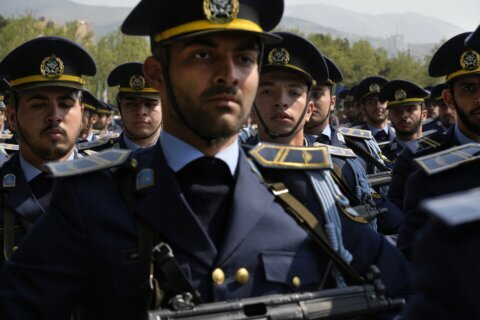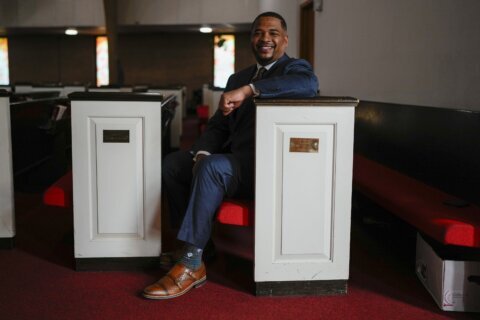UNITED NATIONS (AP) — Libya is mired in a constitutional and political stalemate that has sparked increasing clashes, a dire economic situation and demonstrations across the country by frustrated citizens, a senior U.N. official said Monday.
Assistant Secretary-General Martha Pobee told the U.N. Security Council the overall situation in Libya remains “highly volatile,” with a tense security situation, “deeply disturbing” shows of force and sporadic violence by militias engaged in political maneuvering.
She also cited a dispute over leadership of the National Oil Corporation and serious human rights concerns, including the reported arrest by armed groups of dozens of protesters who took part in July 1 demonstrations decrying deteriorating living conditions and demanding progress on elections.
Oil-rich Libya has been wracked by conflict since a NATO-backed uprising toppled and killed longtime dictator Moammar Gadhafi in 2011. The country was split by rival administrations, one in the east backed by military commander Khalifa Hifter and a U.N.-supported administration in the capital of Tripoli in the west. Each side is supported by different militias and foreign powers.
In April 2019, Hifter and his forces, backed by Egypt and the United Arab Emirates, launched an offensive trying to capture Tripoli. His campaign collapsed after Turkey stepped up its military support for the U.N.-supported government with hundreds of troops and thousands of Syrian mercenaries.
An October 2020 cease-fire accord led to an agreement on a transitional government in early February 2021 headed by Prime Minister Abdul Hamid Dbeibah and to the scheduling of elections for last Dec. 24.
But the elections weren’t held. Dbeibah has refused to step down, and in response the country’s east-based lawmakers elected a rival prime minister, Fathy Bashagha, a former interior minister who is now operating a separate administration out of the city of Sirte.
Pobee said a meeting in Geneva last month between the speaker of the country’s east-based parliament, Aguila Saleh, and Khaled al-Meshri, head of the government’s Supreme Council of State in Tripoli overcame “important contentious points” in a 2017 proposal for a new constitution. But she said they could not agree on one major issue — eligibility requirements for presidential candidates.
The Tripoli-based council insists on banning military personnel as well as dual citizens from running for the country’s top post. That is apparently directed at Hifter, a divisive commander and U.S. citizen who had announced his candidacy for the canceled December election.
Pobee said the U.N. special adviser on Libya, Stephanie Williams, has remained in contact with both sides “and urged them to bridge this gap.”
At a July 21 meeting of international partners in Istanbul, Williams reiterated that elections are “the only lasting solution that places Libya firmly on the path towards peace and stability,” Pobee said.
Pobee urged council members and Libya’s international partners to use their influence on the rivals to agree on elections as soon as possible.
Libya’s U.N. ambassador, Taher El Sonni, who represents the Tripoli government, said that “the current situation could get out of hand at any moment unless radical solutions are found away from foreign interventions and political maneuvers.”
He accused the Security Council of doing nothing out of “paralysis” and internal divisions. He urged its members to listen to Libyan protesters “and their overwhelming desire to end this nightmare and get out of this cycle of conflict and never-ending crises.”
The council meeting took place ahead of the July 31 expiration of the mandate for the U.N. political mission in Libya, which includs a Joint Military Commission monitoring the 2020 cease-fire.
The council’s resolution authorizing the mission called for the withdrawal of all foreign forces and mercenaries from Libya, and Pobee said the monitors plan to meet in Sirte in early August to finalize a proposed plan for their withdrawal.
The council voted April 29 to extend the U.N. mission for just three months because of Russia’s insistence that it must have a new special representative before it has a longer mandate.
Russia’s deputy U.N. ambassador, Dmitry Polyansky, told the council Monday that Moscow recognizes that Secretary-General Antonio Guterres is trying to solve the problem. But he said until a candidate satisfies the Libyans, regional players and all council members, the best option is another three month extension for the mission.
Copyright © 2024 The Associated Press. All rights reserved. This material may not be published, broadcast, written or redistributed.







